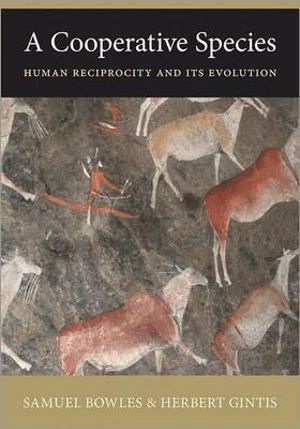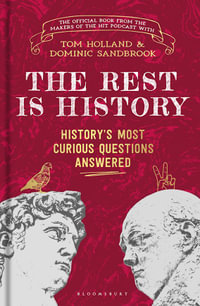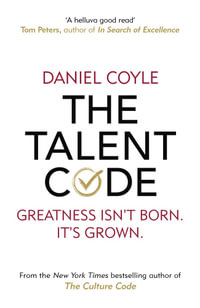
A Cooperative Species
Human Reciprocity and Its Evolution
By: Samuel Bowles, Herbert Gintis
Paperback | 2 July 2013
At a Glance
280 Pages
25.4 x 17.7 x 2.54
Paperback
$59.25
or 4 interest-free payments of $14.81 with
Aims to ship in 30 to 35 business days
A fascinating look at the evolutionary origins of cooperation
Why do humans, uniquely among animals, cooperate in large numbers to advance projects for the common good? Contrary to the conventional wisdom in biology and economics, this generous and civic-minded behavior is widespread and cannot be explained simply by far-sighted self-interest or a desire to help close genealogical kin.
In A Cooperative Species, Samuel Bowles and Herbert Gintis-pioneers in the new experimental and evolutionary science of human behavior-show that the central issue is not why selfish people act generously, but instead how genetic and cultural evolution has produced a species in which substantial numbers make sacrifices to uphold ethical norms and to help even total strangers.
The authors describe how, for thousands of generations, cooperation with fellow group members has been essential to survival. Groups that created institutions to protect the civic-minded from exploitation by the selfish flourished and prevailed in conflicts with less cooperative groups. Key to this process was the evolution of social emotions such as shame and guilt, and our capacity to internalize social norms so that acting ethically became a personal goal rather than simply a prudent way to avoid punishment.
Using experimental, archaeological, genetic, and ethnographic data to calibrate models of the coevolution of genes and culture as well as prehistoric warfare and other forms of group competition, A Cooperative Species provides a compelling and novel account of how humans came to be moral and cooperative.
Industry Reviews
ISBN: 9780691158167
ISBN-10: 0691158169
Published: 2nd July 2013
Format: Paperback
Language: English
Number of Pages: 280
Audience: College, Tertiary and University
Publisher: Princeton University Press
Country of Publication: US
Dimensions (cm): 25.4 x 17.7 x 2.54
Weight (kg): 0.5
Shipping
| Standard Shipping | Express Shipping | |
|---|---|---|
| Metro postcodes: | $9.99 | $14.95 |
| Regional postcodes: | $9.99 | $14.95 |
| Rural postcodes: | $9.99 | $14.95 |
Orders over $99.00 qualify for free shipping.
How to return your order
At Booktopia, we offer hassle-free returns in accordance with our returns policy. If you wish to return an item, please get in touch with Booktopia Customer Care.
Additional postage charges may be applicable.
Defective items
If there is a problem with any of the items received for your order then the Booktopia Customer Care team is ready to assist you.
For more info please visit our Help Centre.
You Can Find This Book In

The Fourth Turning
An American Prophecy: What the Cycles of History Tell Us About America's Next Rendezvous with Destiny
Paperback
RRP $34.99
$28.50
OFF

FREE SHIPPING
RRP $74.50
$44.25
OFF

FREE SHIPPING
RRP $93.75
$54.80
OFF

The Gentle Art of Swedish Death Cleaning
How to Free Yourself and your Family from a Lifetime of Clutter
Paperback
RRP $24.99
$21.75
OFF

Gentle Birth, Gentle Mothering
A Doctor's Guide to Natural Childbirth and Gentle Early Parenting Choices
Paperback
RRP $29.99
$24.90
OFF
This product is categorised by
- Non-FictionMathematicsOptimisationGame Theory
- Non-FictionScienceBiology, Life SciencesLife Sciences in GeneralEvolution
- Non-FictionEconomicsEconomic Theory & Philosophy
- Non-FictionSociology & AnthropologyAnthropologySocial & Cultural Anthropology, Ethnography
- Non-FictionSociology & AnthropologySociologySocial Theory


















